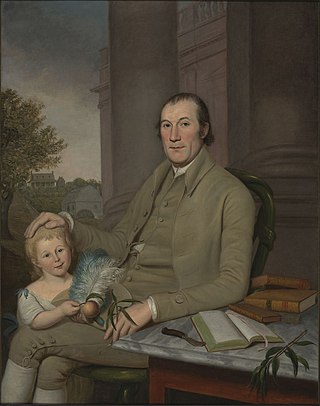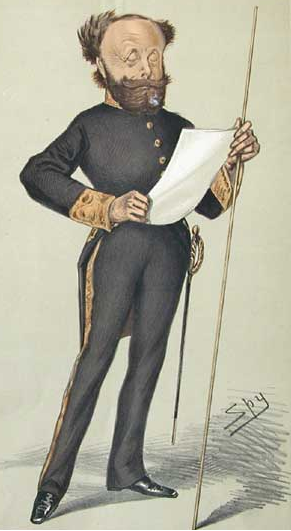Related Research Articles

Otho was Roman emperor, ruling for three months from 15 January to 16 April 69. He was the second emperor of the Year of the Four Emperors.

Poppaea Sabina, also known as Ollia, was a Roman empress as the second wife of the emperor Nero. She had also been wife to the future emperor Otho. The historians of antiquity describe her as a beautiful woman who used intrigues to become empress.

William Smith was an American politician and representative of the fourth congressional district of Maryland in the United States House of Representatives.
Marcus Vettius Bolanus was a Roman senator and soldier. He was suffect consul for the nundinium of September-December 66 as the colleague of Marcus Arruntius Aquila.
The Treaty of York was an agreement between the kings Henry III of England and Alexander II of Scotland, signed at York on 25 September 1237, which affirmed that Northumberland, Cumberland, and Westmorland were subject to English sovereignty. This established the Anglo-Scottish border in a form that remains almost unchanged to modern times. The treaty detailed the future status of several feudal properties and addressed other issues between the two kings, and historically marked the end of the Kingdom of Scotland's attempts to extend its frontier southward.

Posillipo is an affluent residential quarter of Naples, southern Italy, located along the northern coast of the Gulf of Naples.
Lucius Calpurnius Piso Frugi Licinianus (38–69) was a Roman nobleman who lived in the 1st century. His adoption by the Roman emperor Galba on 10 January 69 AD precipitated their joint murder by Otho, who had expected to be adopted instead. Otho then became the second emperor of the Year of the Four Emperors.

Lord Otho Augustus FitzGerald PC was a British soldier and Liberal politician. He notably served as Comptroller of the Household under William Gladstone between 1868 and 1874. He was also a noted amateur composer.

Publius Vedius Pollio was a Roman of equestrian rank, and a friend of the Roman emperor Augustus, who appointed him to a position of authority in the province of Asia. In later life, he became infamous for his luxurious tastes and cruelty to his slaves – when they displeased him, he had them fed to "lampreys" that he maintained for that purpose, which was deemed to be an exceedingly cruel act. When Vedius tried to apply this method of execution to a slave who broke a crystal cup, Emperor Augustus was so appalled that he not only intervened to prevent the execution but had all of Pollio's valuable drinking vessels deliberately broken. This incident, and Augustus's demolition of Vedius's mansion in Rome, which Augustus inherited in Vedius's will, were frequently referred to in antiquity in discussions of ethics and of the public role of Augustus.
Junia, called Junia Secunda by modern historians to distinguish her from her sisters, was an ancient Roman woman who lived in the 1st century BC. She was the sister of Marcus Brutus, and was married to the triumvir Marcus Aemilius Lepidus.

Tiberius Julius Mithridates Philogermanicus Philopatris, also known as Mithridates III of the Bosporus, was a Roman client king of the Bosporus.

Tiberius Julius Cotys I Philocaesar Philoromaios Eusebes, also known as Cotys I of the Bosporus, was a Roman client king of the Bosporan Kingdom.
Otho Lovering was an American filmmaker with about eighty editing credits on feature films and television programs.

Wallengrenia otho, the southern broken dash or broken dash skipper, is a butterfly of the family Hesperiidae. It was originally described by Smith in 1797. It is found from eastern Texas and the southeastern United States, south through the West Indies and Central America to Argentina. Strays can be found as far north as central Missouri, northern Kentucky and Delaware.
Major Otho Hamilton was a military officer of the 40th Regiment of Foot who served on the Nova Scotia Council and as Governor of Placentia.

The Chase family is an American family whose members included early American pioneers and those involved in politics, the clergy, business and the military. Originating in Chesham, England, brothers Aquila Chase II and Thomas Chase journeyed to New England. In June, 1640 the brothers received land grants in Hampton, now a part of the State of New Hampshire. Most of the notable members of the family were descendants of Aquila Chase, whose children settled in Massachusetts and New Hampshire. In the late 1700s and early 1800s, members of the Chase family, who had previously been wealthy but not particularly influential, began involving themselves in law, politics, and religion. Lawyers such as Scott Lord and Salmon Portland Chase, Chief Justice of the United States, were produced. Chase politicians included Dudley Chase, Champion S. Chase, Dudley Chase Denison, and Margaret Chase Smith. Though the Chase politicians were perhaps best known, the family produced several notable clergymen as well, including Episcopal bishop and educator Philander Chase and the Presbyterian theologian John Chase Lord, who were at the forefronts of their respective churches in their prime.
Antonius Novellus was a politician of ancient Rome who served as one of the Roman emperor Otho's principal generals, though he possessed no influence with the soldiery.
Gaius Julius Aquila was the name of a number of people who lived during the Roman Empire.
Vedius can refer to a number of historical or mythological people:
Appius Annius Gallus was a Roman senator and general who flourished during the first century. He held the office of suffect consul in 67 with Lucius Verulanus Severus as his colleague. The suffect consul of 67 is commonly identified as the general who supported Otho during the Year of the Four Emperors.
References
![]() This article incorporates text from a publication now in the public domain : Smith, William (1870). "Aquila, Vedius". In Smith, William (ed.). Dictionary of Greek and Roman Biography and Mythology . Vol. 1. p. 253.
This article incorporates text from a publication now in the public domain : Smith, William (1870). "Aquila, Vedius". In Smith, William (ed.). Dictionary of Greek and Roman Biography and Mythology . Vol. 1. p. 253.